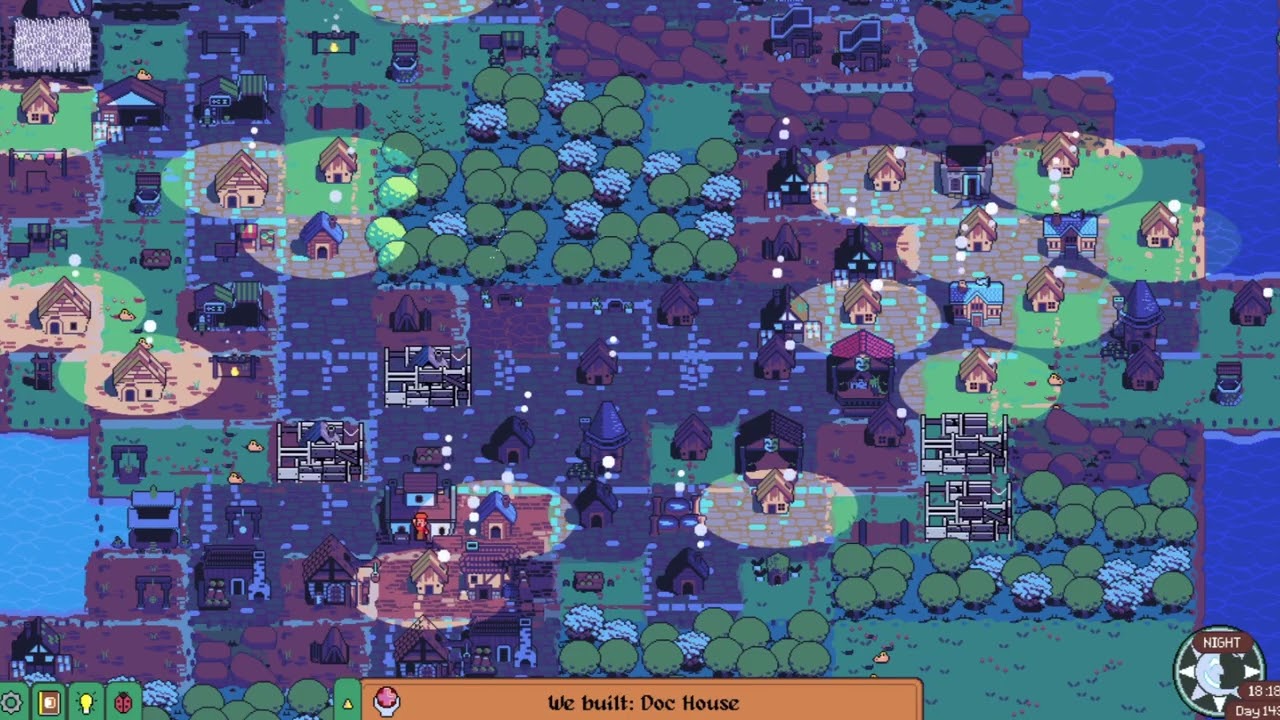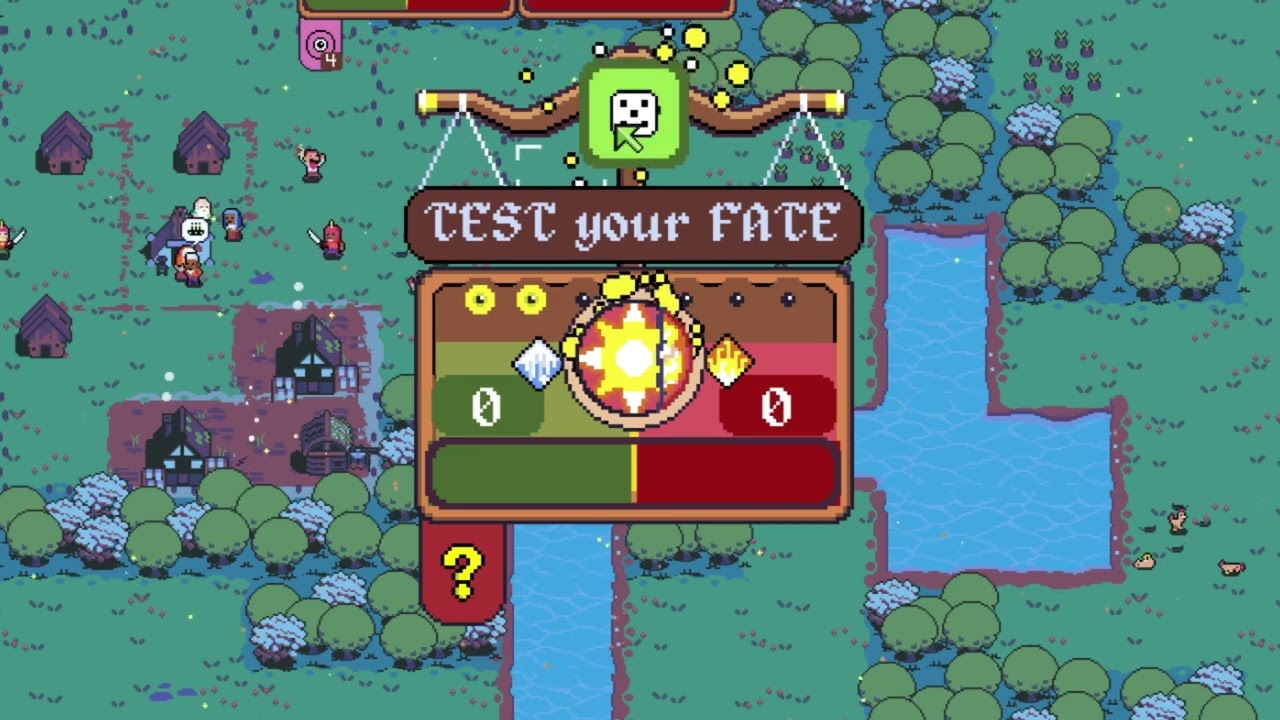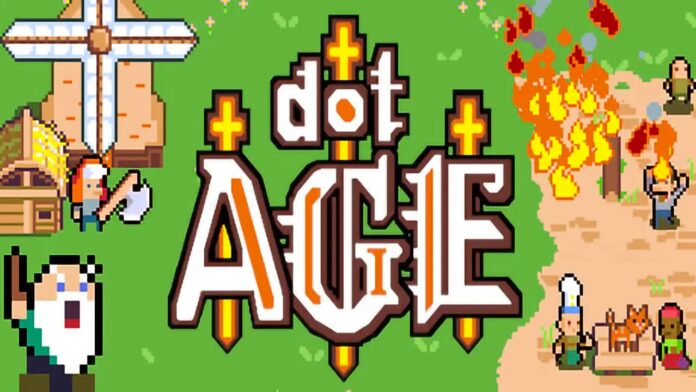While it might look minimalist from the exterior, dotAGE is actually hiding a pretty complex village builder with countless random events you might come across.
What is dotAGE
Developed by a one-man team, dotAGE is a roguelite turn-based city builder. If any of those keywords spark any interest, you should definitely keep an eye on this little gem. On the surface level the main precepts of the game sound simple enough. You are given control over a small village with a small population of four. It will be up to you and the memories of your village elder to try and survive. While the world around you might look friendly, catastrophe is always a looming threat that you will have to deal with. Let’s dive deeper and find out what actually makes this game click.
Basic Concepts

At its core, dotAGE borrows heavily from boardgames in aesthetics as well as core gameplay mechanics. To start things off you will have to choose the starting area for your village. The world that you start off in is rather limited, so you won’t have a ton of options. Expanding your base is also easy to do from the start with the help of Signposts.
After choosing the placement of your village center you will get control over your four starting villagers. The game borrows from board games yet again and calls them Pips. Pips are your basic workforce and will be needed to build, gather resources, and reproduce. Since the game is turn-based, every Pip will be able to do one task in a turn. Assigning tasks to them is done simply enough by left-clicking a building or a resource. Buildings might also require more days to build, forcing a Pip to dedicate more turns to that task. Reproduction is done simply enough; just assign two Pips to a house with a vacant spot, and they will give birth to a baby.
If you’ve ever played a board game before that makes use of Pips as your workforce, most gameplay mechanics around building up your village should feel like second nature. But don’t try to grow in numbers too fast, since each Pip requires one piece of food per day, even when they’re a child. Setting up a reliable food source should be your priority since a bigger population means faster expanding.
Research is King
With more than 200 buildings in the game, dotAGE has plenty of valid tactics to success. But accessing them is easier said than done, since all of them are hidden behind a research tree. In order to research them, you will require special buildings that can generate research points each day, as long as a Pip is assigned to them. In time you will be able to upgrade these buildings, and they will also require a trained Pip to operate them.
Researching newer buildings is a must, but sometimes you can take a break from it if you need to allocate your Pips to something more important. If your village is starving, research won’t feed any mouths, so maybe put that Pip to work making some food. And don’t worry about wasting research points if you’re making more than the next research requires, you’ll be able to use them for your next project.
Events, Omens, and Domains

Instead of opting for the usual mechanics of opposing villages that you have to fight against, dotAGE focuses on another type of enemy, catastrophe. Every so often your village elder will have a premonition about a certain event that will affect your village in due time. At first these will be rather simple events that won’t affect a lot, but given enough time they will start taking a toll on your village and its population. You will also be presented with a tracker that will give you a decent estimation of all upcoming events and omens, all of it leading up to a final, bigger event. Manage to survive this one as well and the tracker will reset.
All of these events and omens will be a part of particular domains. These domains include Fear, Disease, Cold, Heat, and so forth. Each of these domains will generate a certain type of resource that you will have to combat with your own resource generation. For example, the Fear domain will obviously generate fear. After a certain event, Fear will start adding up daily, and you will have to generate Hope in order to prevail. After a set amount of days, both Fear and Hope numbers will be compared. The bigger your Hope number is, the better your chances of landing a good event. Fail to generate enough Hope and you will automatically be hit with a negative event.
While at first even negative events won’t instantly annihilate your entire village, they can still do a lot of damage. Villagers can become sick or stunned, forcing them to not work for a few days. Certain buildings can become unusable for a period of time as well. Your best bet is to always create plenty of resources to fight off particular domains, while also trying to constantly research better buildings that can offer more resources per day.
Conclusion
To put it plainly, failure is a big part of this game. None of your runs will be perfect, and fighting tooth and nail against the game’s rules is a big part of gameplay. But fret not, there is a huge variety of events that can happen every game, giving a ton of replayability. You can also experiment a lot with various buildings and figure out what works best for you. All in all, dotAGE is a great game that similarly with Civilization will have you going “Just one more turn.”.



